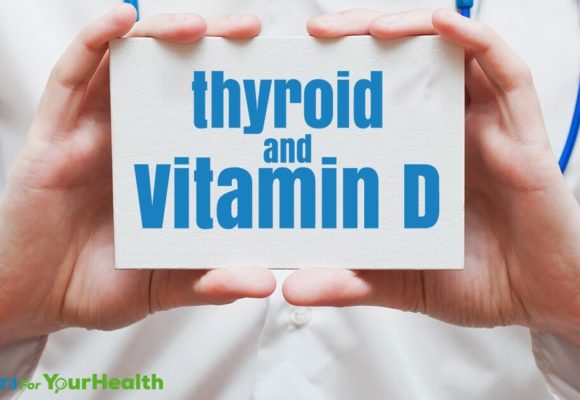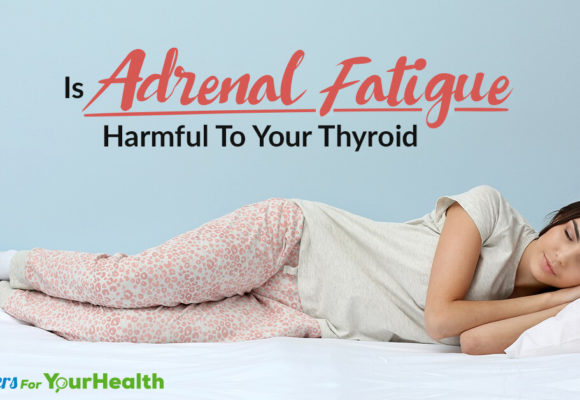1) Grab a FREE copy (Value $14.95) of one of my books Thyroid Symptom Overload
Just pay shipping $7.95 for any US orders. Or, if you want to pay full price plus shipping, order from Amazon :)
2) Take our Thyroid Quiz today and find out what "Thyroid Type" you have
This quiz will help you quickly discover where your symptoms are stemming from.
3) Join Our Thyroid Advocate Membership Site - Natural Thyroid Academy
FREE for a limited time. No credit card required.
4) Work with me and my team privately
Schedule your FREE 15 minute phone consultation and we can find out the best way to help you specifically.
What does the term hyperthyroidism refer to? It is defined as a condition where the thyroid gland is in overactive state and produces massive amounts of thyroid hormone. The thyroid gland is a butterfly shaped a small gland which releases the hormones to maintain the metabolism, heart rate, breathing, nervous system, body temperature, weight, and many other body functions.
In the overactive condition of the thyroid gland, the processes of the body speeding up can result in anxiety, nervousness, hand tremors, rapid heartbeat, and weight loss, excessive sweating, sleep problems, and other symptoms.
Thyrotoxicosis is a toxic condition which occurs due to excessive thyroid hormones. The causes of thyrotoxicosis include excessive consumption or overproduction of thyroid hormones.
The following are the two hormones released by the thyroid gland: T3 and T4 which plays a significant role in body’s functions. When these hormones are produced in massive amounts, it is called hyperthyroidism.
Symptoms Of Hyperthyroidism:
The following are the symptoms of hyperthyroidism:
- Hives and itching
- Increase in blood sugar levels
- Hand tremors
- Rapid heartbeat
- Skin dryness
- Trouble sleeping
- Weight loss
- Irregular heartbeat or Heart palpitations
- Anxiety
- Mood swings
- Light periods
- Increased frequency of bowel movements
- Irritability
- Muscle weakness
- Vision change
- Some people also develop a goiter, which is a form of an enlarged thyroid gland.
Causes Of Hyperthyroidism:
The underlying causes of hyperthyroidism are :
1) A leading cause of hyperthyroidism is an autoimmune condition called “Grave’s disease. ” During this autoimmune disease, antibodies (a type of protein which protects against bacteria and viruses), i. e. , TSI (a thyroid stimulating Ig) are produced. This results in increased production of thyroid hormones. Grave’s disease is commonly seen in women, and it’s often passed down genetically.
Symptoms of Grave’s disease include eye and skin disease which involves swelling, light sensitivity, tears, redness and protrusion of the eyes. The skin appears red, painless and lumpy with skin rashes on legs.
Triggering factors of Grave’s disease can include medications, stress, viral infections, smoking, and radiation.
2) Hyperthyroidism may also occur due to multinodular or toxic nodular goiter. This can be described as the nodules or lumps present in the thyroid gland. These growths produce massive amounts of thyroid hormones.
3) Thyroid gland inflammation, i. e. , Thyroiditis can also result in hyperthyroidism. Thyroiditis occurs due to the viral infections or temporary problems in the immune system.
4) Excessive iodine intake from food sources or medicine like Amiodarone.
5) Hyperthyroidism may also occur during pregnancy.
Complications Of Hyperthyroidism:
Complications include:
- Heart problems, such as heart failure and atrial fibrillation may occur if hyperthyroidism is not treated by your medical doctor.
- Osteoporosis
- Eye problems because of Graves’ disease
- Thyrotoxic crisis, which is due to advanced hyperthyroidism. It can includerapid pulse, fever, and delirium symptoms.
Common Diagnostic Tests Performed By Your Medical Doctor:
The following are the diagnostic tests often carried out by your medical doctor for hyperthyroidism:
- A physical examination which shows the signs such as weight loss, increased blood pressure, rapid pulse, enlarged thyroid, or protruding eyes.
- Blood tests to determine T3, T4 and TSH levels
- Nuclear Medicine Scan
- Ultrasound
- Cholesterol tests
- Triglyceride tests
- CT/MRI
Your Medical Doctor May Recommend The Following Treatment Plan:
- Your doctor may recommend you take antithyroid medication which includes Methimazole. Another drug is Propylthiouracil, which can be given to pregnant women during the first trimester. Your doctor may also prescribe you with Beta blockers such as Propranolol, Atenolol, and Metoprolol.
- Radioactive Iodine therapy such as Iodine (I131) either by mouth or I/V
- Surgical procedures
- Hyperthyroidism may also result in osteoporosis or thin bones. So your primary medical doctor may advise you to supplement with Vitamin D and Calcium.
What Can Be Done To Help Your Symptoms?
- You should consume a proper diet that includes sodium and calcium.
- A regular exercises regime.
- Take nutritional supplements to help support your body.
Conclusion:
Treatment options from your primary medical doctor depends on your symptoms, severity, age, medical conditions, and if you are pregnant. Consult your medical doctor or endocrinologist for treatment plan advice.
You should speak with your doctor if you notice any symptoms of hyperthyroidism. Early diagnosis, in combination with treatment planning is essential to achieve long-term results. Infections or stress may lead to a “thyroid storm”, which can occur due to the increasing amount of thyroid hormones which can result in life-threatening conditions.
REFERENCES:
http://www. healthline. com/health/hyperthyroidism
https://medlineplus. gov/hyperthyroidism. html
https://familydoctor. org/condition/hyperthyroidism/
https://www. thyroid. org/hyperthyroidism/
https://en. wikipedia. org/wiki/Hyperthyroidism
http://www. webmd. com/a-to-z-guides/overactive-thyroid-hyperthyroidism
http://www. medicinenet. com/hyperthyroidism/article. htm
https://www. reddit. com/r/gravesdisease/
https://www. reddit. com/r/Hyperthyroidism/
http://www. mayoclinic. org/diseases-conditions/hyperthyroidism/basics/symptoms/con-20020986
http://www. mayoclinic. org/diseases-conditions/hyperthyroidism/basics/definition/con-20020986








